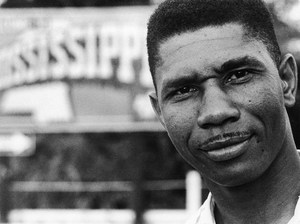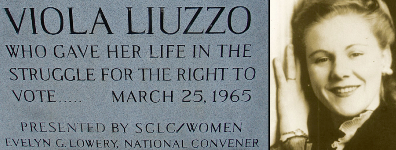Wisdom
by Charles Peek
“The trade of governing has always been monopolized by the most ignorant and the most rascally individuals of mankind. -Thomas Paine, philosopher and writer (9 Feb 1737-1809), as quoted in Wordsmith February 9, 2018.
There are I suppose “ecclesiastical” reasons to be thinking about wisdom just now. Some of the ways in which during Epiphany the church noted how Christ can be understood by showing “the Christ” as the embodiment of the Figure of Wisdom that runs through the Hebrew Scripture. From this, as Lent follows, we are enjoined to deepen our understanding.
I don’t think, however, that’s what led me to my topic—churched though I am and a lover of its seasons, that is not what turned my attention to Wisdom. Well, not quite.
When our Milwaukee family came right after Christmas, four-year-old Henry asked if he could play with the figures in our crèche. The fact that he asked is no doubt owed to his other grandparents, Jon and Martha Bruss, who have been teaching him to ask. The fact that, when he gets an answer, he pays attention to it marks a significant step in his growth from infant to child.
In this case, he asked and I told him he could touch the figures but not play with them. But first, I said, tell me what all these folks in the barn are celebrating. He didn’t miss a beat. The birth of Jesus, he replied. So, I asked, where is Jesus?
Our crèche holds a little makeshift manger and by Christmas Day we’ve placed in it a little haloed babe—okay a little hokey but clearly within the range of the usual Giotto-like iconography! Henry pointed right at the baby.
So who is this? I asked. That’s Mary, his mother, Henry told me. And this? That’s Joseph, his father. And this? That’s the shepherd. Right on the button—we have only one in the crèche, with several sheep nearby from assorted crèche sets accumulated over the years and by marriage.
Now we don’t put the magi and their camels and gifts in our crèche until Epiphany, but we do have standing nearby a turbaned mullah, possibly an Imam. And without prompting, Henry pointed to this figure and said, “And that’s the wise man.”
Out of the mouth of Babes! For the first time, Henry’s nickname, Huck, took on new meaning, for Huck is the name of one of America’s most endearing Wisdom Figures, Huckleberry Finn.
This was just another reminder that sometimes wisdom comes from those not always deemed very wise by everyone…at least not by older brothers and sisters.
Wisdom has set me to musing about how we are in the midst of watching one of the most dastardly of the ploys of the current Publicans. (There being it seems only a half dozen or so true Republicans left, I’ve quit referring to the current crop of quislings as Republicans!) The ploy is to deny the vote to those who are not likely to vote for them and masquerade this raw grab for power as protecting us from voter fraud.
Never mind how little evidence there is of widespread voter fraud. Never mind that what little evidence there is indicts the sleazy practices of right-wing political campaigns. None of the current Publican ploys has anything to do with voter fraud, about which they could care less.
So, in the midst of this tyrannical (and well-financed) campaign to rid the polls of voters least likely to vote Publican, our good friend Cynthia Caples (retired State Department) sent us Danny Lyon’s recent “Memories of Mississippi” that appeared January 10 in the New York Review of Books. Having brushed up against nearly every key figure in the movement for Black rights as a photo-journalist in the decade of Civil Rights, Lyon ends his “memoir” with a reference to Al Sharpton. I take note here of Lyon’s reference to Sharpton to draw a sharp contrast that might add to our understanding of voting restrictions.

Sharpton is no doubt an easy target for ridicule, especially among those who think macho politics is labeling people with belittling names and calling for them to be locked up. (First Hillary, recently the Mayor of London, and daily just about anybody who opposes their lunacy, including peaceful protestors.) So, indeed, whether from character or circumstance, Sharpton sometimes seems out-for-himself and something of a buffoon and Tom Wolfe certainly managed a send up of a Sharpton figure in Bonfire.
But here, first, is the contrast: these caricatures pale in comparison to the current crop of Publicans, and among those choices I’ll take Al just about any day as a Wisdom Figure. This much is sure—he’s head and shoulders above the crowd of avaricious, duplicitous, and derisive toadies that populate the list of those who could become President if the current occupant were not already in office and not already far their superior in avarice, duplicity, and derision.
And, that said, here is the application to restricting the franchise. It is what Al has to say about restricting the vote of so many good citizens, especially as occurred with African Americans in Milwaukee, Detroit, Pennsylvania, etc. in the last election:
“When they ask for our voter ID, take out a photo of Medgar Evers. Take out a photo of Goodman, Cheney, and Schwermer. Take out a photo of Viola Liuzzo. They gave their lives so we could vote. Look at this photo. It gives you the ID of who we are.”
Here are some of the photos should you need them, starting with Medgar Evars:


You can find Andrew Goodman, Michael Schwermer, and James Cheney on line. Take the photos to your registrar to get your official yellow star voter I.D.
Anyway, Huck, Al, you’ve both shared Wisdom with me. In the midst of the racist and regressive partisanship of the Publicans that is today trumping decades of progress by what used to be two viable political parties, both of which would have found collusion with the Russians appalling, every little show of Wisdom is welcome. It manifests a spirit we might otherwise be led to doubt.
One further note: these restrictions of voting rights are, of course, coupled with gerrymandered districts that allow the right to hog the vote. This “unequal distribution” is part and parcel of other growing disparities, such as disparity of income or of pay.
Now, it will take a historian or geographer—someone of greater knowledge than I possess—to check out and fill in the picture, but here is something interesting to me. Sometime around the year 1000, changes in farming methods and the development of market centers changed food production and distribution for the better and, as a result, population grew. But about 1200 or so, northern Europe began to get a lot colder, restricting production and markets, making food scarce and so more expensive, and creating a disparity at the table—the rich ate more and better, the poor ate less and worse. The disparity grew until exploration and conquest once again changed agriculture, opening new markets and easing up the demands of European farming. The disparity decreased and the diet of the poor improved.
Note, their good fortune did not have anything to do with changes in heart of those whose avarice had exploited a food disparity. It had to do with exploiting indigenous Americans instead.
Here’s a parallel: about 1800-1900, the use of fossil fuels again changed industry, agriculture, and the economy. These fuels however caused the globe to get a lot hotter, creating famine in some quarters, plentiful harvests in others, again abetted by technology. And guess what, just as the world getting colder created disparities about a millennium ago, so today each year brings a sharper disparity between rich and poor, have and have little, the overfed and the underfed.
I’m not so sure it is terribly useful any more to speak of capitalist economies and socialist economies. I think there just may just be economies that are easier for the wealthy to exploit at others’ expense and economies where that is made just a little harder.
As my friend and economist Allan Jenkins and I were recently discussing, I’m not big on theories of economic cycles—Marxist or Capitalist—they leave out too much relevant data, fracture the facts to form too neat a picture. But if I were to change my mind, it would be the apparent repeating history of how shortages are exploited to increase the disparity between rich and poor that would play heavily in my reconsideration.
A healthy respect for the divine mandate to feed the hungry is, the Psalmist reminds us, the beginning of Wisdom. Of course, that’s just a rough paraphrase. It might be open to another interpretation and taken to mean get what you can while the gettin’ is good! Might? That’s how the 1% and our religious ‘right and white’ already read it!
Kearney, Nebraska
Ash Wednesday 2018